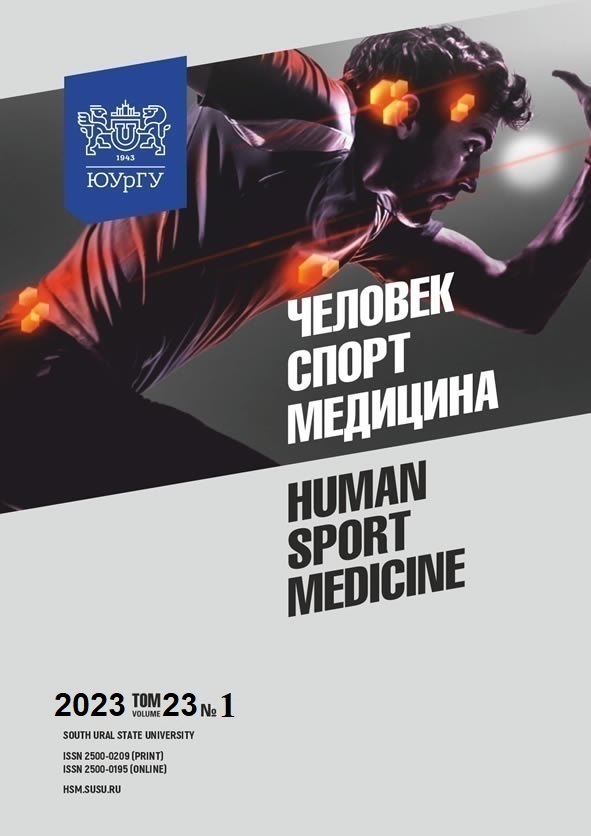PSYCHOPHYSIOLOGICAL MECHANISMS OF THE STRESS RESPONSE AS A SOURCE OF ATHLETIC SUCCESS
Abstract
Aim. This study is aimed at searching for the psychophysiological characteristics of adaptive mechanisms in elite athletes in order to evaluate their stress response and post-stress recovery. Materials and methods. The study involved equipment-based psychophysiological methods for presenting stimuli and recording the speed and accuracy of responses, alternating with monitoring at rest (BOSLAB system by COMSIB Ltd.). Results. The classification based on multivariate discriminant analysis made it possible to divide the subjects into three groups and reliably assess the differences and similarities between these groups, whereas the basic set of discrimination features allowed for the specification of psychophysiological characteristics of the subjects, namely, their stress reactivity and post-stress recovery. Conclusion. Knowledge of the type of response and recovery in athletes allows for the selection of individual self-regulation techniques, control over fatigue, and assessment of mental preparedness for a competition.
References
References on translit
Copyright (c) 2023 Human. Sport. Medicine

This work is licensed under a Creative Commons Attribution-NonCommercial-NoDerivatives 4.0 International License.















